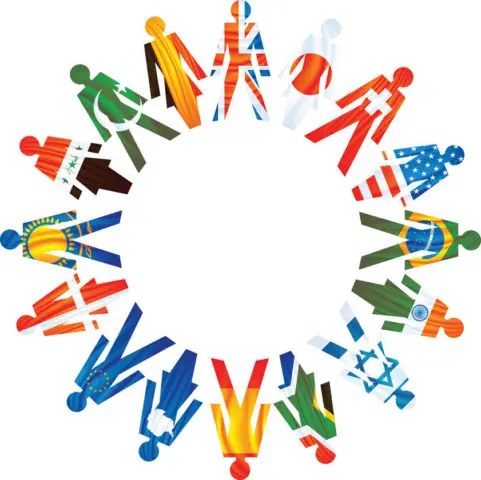
“cross-culturalization” is a gradual process by which one culture adopts features of another that can culminate in “acculturation”, which refers to the result of which a person or a group of people acquire a new culture, but at the expense of the loss of their own culture, sometimes involuntarily.
Many Costa Rican traditions and customs over time have been lost. North American ideologies and trends have had an overwhelming influence on the daily life of our population, such as the way we speak and dress, thus causing the devaluation of national identity.
The high literacy rate in Costa Rica, along with the influence of mass media such as television and radio, generated that many inhabitants tended to prefer reading foreign articles and taken to use trends brought from the United States and other parts of the world.
This social phenomenon caused some Costa Ricans to lean towards life very different from what their parents and grandparents experienced. Another factor that encouraged inclining towards American culture, was that young people who traveled to the United States and then returned to Costa Rica came back with ideas and customs about that country.
One of the main pieces of evidence of cross-culturalization can be observed in the way of speaking, mainly young people. Currently, an incorrect verbal combination has been created between English and Spanish words, which are widely used in daily conversations of all social classes. Some of these best-known expressions are: “sandwich”, “birra”, “que cool”, “pancakes”, “folder”, and “pilot” among many others. Similarly, the “bombas”, a typical of Costa Rican tradition have become less popular; since new generations are not accustomed to hearing about them or do not even know what they mean.

On the other hand, the general way of dressing of Costa Ricans has become more similar to that of North Americans and Europeans. People try to follow the trends of foreign countries and little by little, the typical dresses that were used for some celebrations and special events are not visible. It is sad to observe that the youth feel ashamed to wear the typical costumes of their country, unlike the other Central American countries which have not to suffer such a rapid and obvious cross-culturalization.
Costa Rican society has been forced to evolve to survive in the global sphere. This evolution can be seen especially with regards to technological advances that have been emerging.
While “Ticos” love to buy the latest video games or other state-of-the-art devices that appear on the market, with these we don’t realize the loss of doing enjoying many activities with our children, family, friends that although seem simple and trivial, really represent practices of our culture, such as sharing a family dinner, going out to eat ice cream or sharing a picnic in a park during a summer afternoon.
All that has changed by rather people being on the lookout for “chats” in the different social media networks, where direct relationships are not put into practice or physical activities for good health. Much has been lost due to cross-culturalization.
It is very difficult to save all the tangible and intangible elements of a country if families do not make an effort to keep the essence of Costa Rica alive and decide to preserve our native culture.
Unfortunately, we are not instilling those values that highlight us to our children. We must remember that children represent the future. How will it be 20 years from now? Will, we still take into account the beautiful past of our country or we will all be part of all that cross-culturalization does, leaving behind and forgetting by giving a un-filtered way to new imported ideas.
cross-culturalization is a phenomenon that undermines the foundations of people’s idiosyncrasies, modifies lifestyles, and transforms good customs and traditions that represent a country. Let us be responsible and love our country by do not allow those negative transformations to produce the total disappearance of that which identifies us as a nation.

